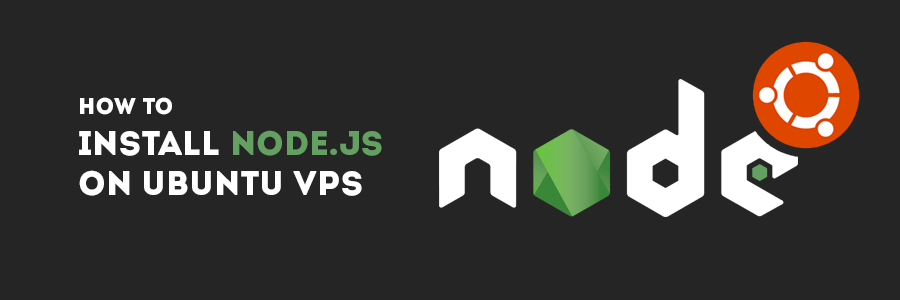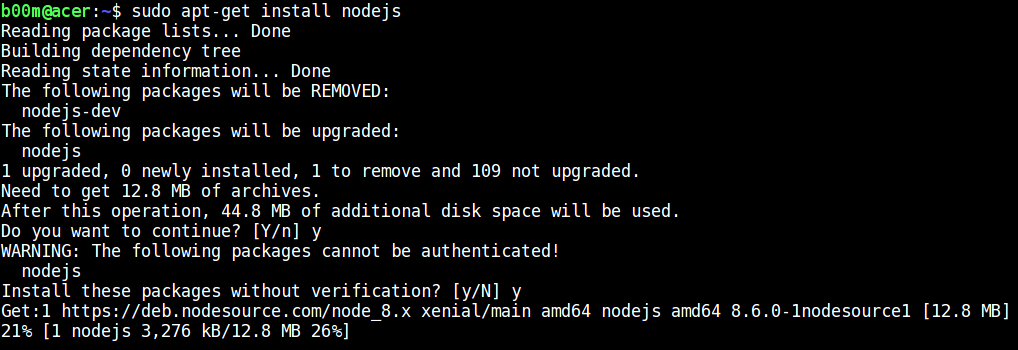Install Node Js Ubuntu
Node.js is an open source cross-platform JavaScript run-time environment that allows server-side execution of JavaScript code.In simple words you can run JavaScript code on your machine (server) as a standalone application, and access form any web browser.When you create a server side application you need Node.js, it is also help to create front-end and full-stack. Npm (Node Package Manager) is a package manager for the JavaScript programming language, and default package manager for Node.js.This tutorial will cover step by step methods “ how to install node js in ubuntu 19.04″.in case you need the latest Node.js and npm versions.

Dec 8, 2016 - Install Node.js on Ubuntu in this quick tutorial that will get you up and running on your way to building Node.js applications. Jun 04, 2019 How to Install Latest Node.js and NPM on Ubuntu with PPA Step 1 – Add Node.js PPA. Node.js package is available in LTS release and the current release. Step 2 – Install Node.js on Ubuntu. You can successfully add Node.js PPA to Ubuntu system. Step 3 – Test Node.js and NPM Version. After installing. Install Node.js For linux kernel based OS like Ubuntu/MacOS/SunOS. Verify Node.js installation. Using a Text Editor, create a sample file with name verifyNode.js. Run Node.js File. In this Node.js Tutorial, we have learnt to install Node.js on a computer and verify.
We will use the system package manager (eg. Apt or yum) to install Node.js 6.x, to be able to continually receive security updates without risking a major version jump with possibly breaking changes.You can jump directly to the installation instructions here:.About Node.js Long-Term Support (LTS)Every major version covered by the LTS plan will be actively maintained for a period of 18 months from the date it enters LTS coverage.
Uninstall Node Js Ubuntu

Following those 18 months of active support, the major version will transition into “maintenance” mode for 12 additional months.viaNode.js 6 LTS will be actively maintained until April 2018, and passively maintained until April 2019, as shown in the image above. It is recommended to use the long-term support version for client projects, in order to be guaranteed a long active maintenance with security updates.Installing Node.js 6.x LTS on Ubuntu and DebianThis is the to install Node.js 6.x on Ubuntu, Debian, Linux Mint, Linux Mint Debian Edition (LMDE) and elementaryOS. # Install Node.js 6.x repositorycurl -sL bash -# Install Node.js and npmapt-get install -y nodejsThe basically just checks whether your operating system version is suppored and adds the corresponding repository (eg. Xenial InRelease).Installing Node.js 6.x LTS on CentOS 7Node.js provides a script for CentOS/Fedora/RHEL based distributions, which checksyour operating system and adds the corresponding RPM repository for yum, the standard package manager.